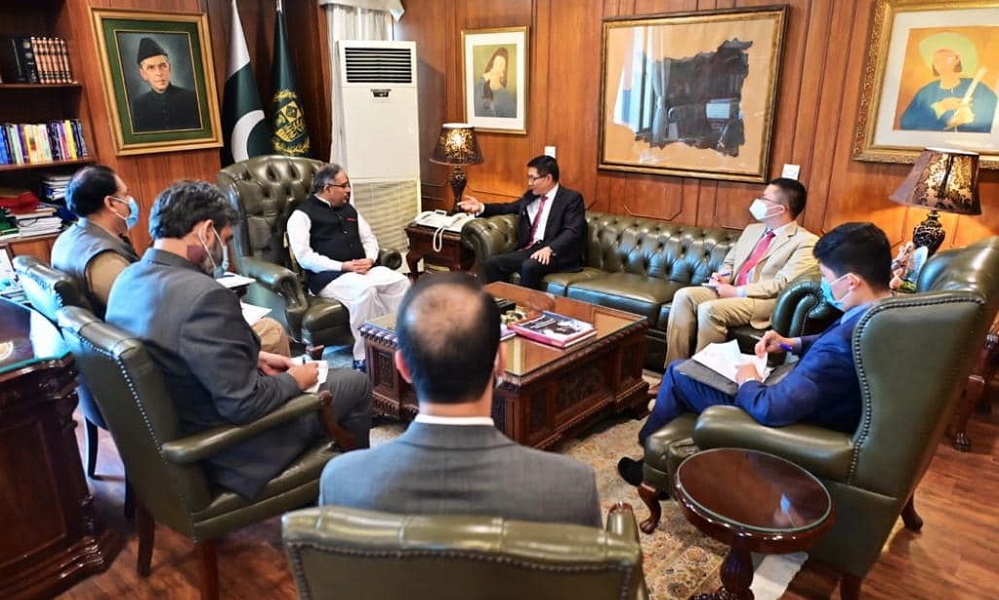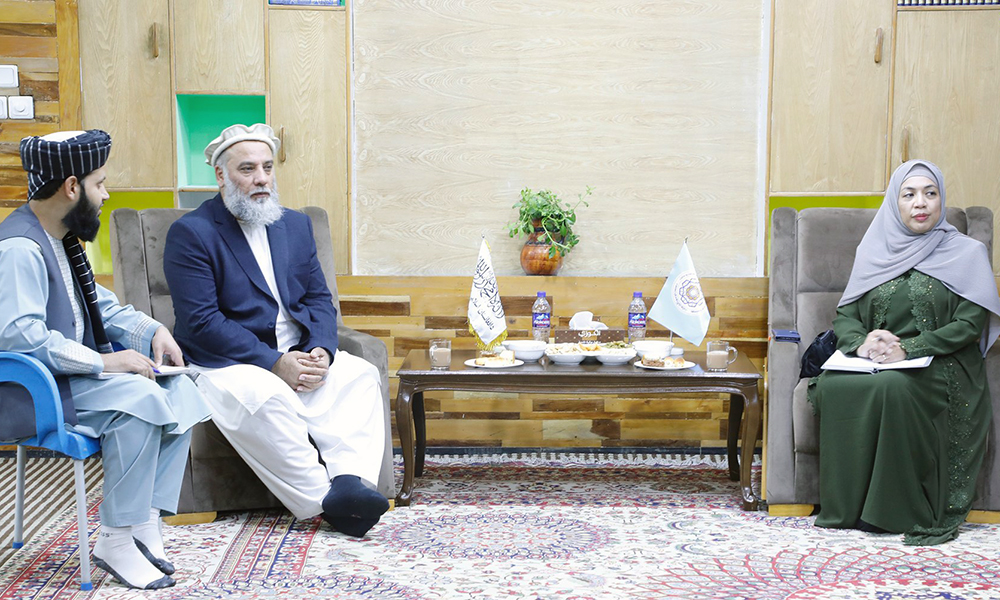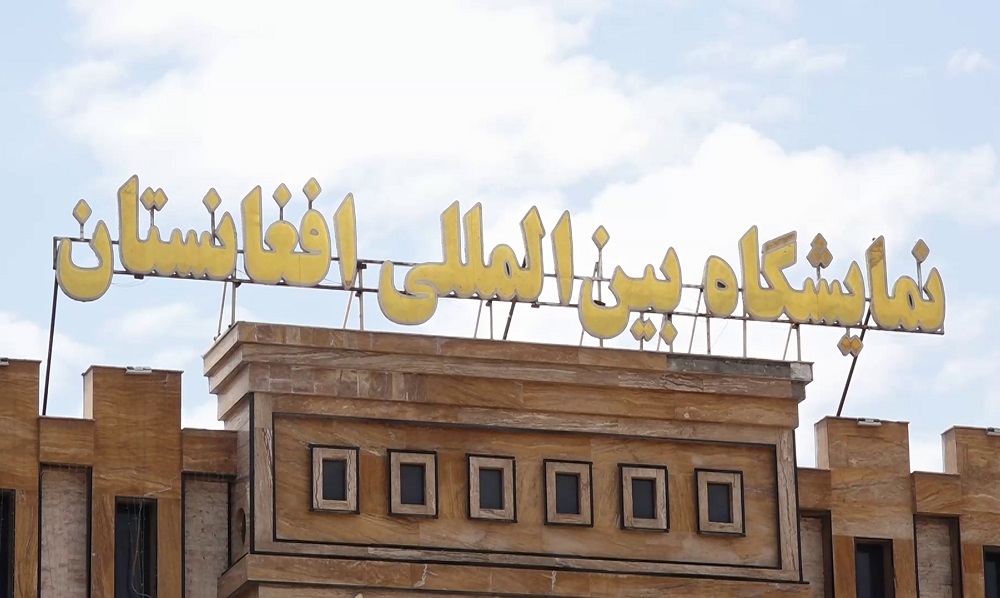Business
Pakistan, China discuss expansion of CPEC to Afghanistan

Pakistani and Chinese officials on Monday discussed the possibility of Afghanistan joining the multibillion-dollar China-Pakistan Economic Corridor (CPEC) infrastructure project.
The idea to extend CPEC, the central part of the Belt and Road Initiative, was discussed during a meeting between China’s special envoy on Afghanistan Yue Xiayong and Foreign Secretary Sohail Mahmood in Islamabad.
An official statement said the two sides exchanged views on the political and security situation in Afghanistan, humanitarian assistance by Pakistan and China to Afghanistan, and other matters of mutual interest.
“In the context of regional connectivity, both sides exchanged views on extension of CPEC to Afghanistan to promote economic development and prosperity,” read the statement.
The foreign secretary underscored Pakistan’s commitment to a peaceful, stable, prosperous, and connected Afghanistan. He highlighted the provision of humanitarian assistance to Afghanistan, including Pakistan’s relief efforts in the wake of devastating earthquake in eastern Afghanistan on 22 June 2022.
He also stressed the importance of unfreezing of Afghanistan’s foreign reserves and facilitation of banking operations to ease the economic hardships of the Afghan people and help build a sustainable economy.
The foreign secretary further underlined the importance for the Afghan side to address the international community’s expectations regarding inclusivity; respect for the rights of all Afghans, including girls’ education; and effective counter-terrorism measures.
He underscored that the international community’s focus should not be diverted from the dire situation in Afghanistan owing to events taking place elsewhere.
Chinese envoy Yue Xiaoyong appreciated the important and constructive role played by Pakistan in the context of Afghanistan. Both sides agreed that only a peaceful, stable and connected Afghanistan could act as a fulcrum for enhanced regional trade and connectivity.
Earlier, the Chinese special envoy for Afghanistan held talks with his Pakistani counterpart Mohammad Sadiq. Both sides took stock of the evolving situation and discussed humanitarian assistance, infrastructure development, as well as trade and transit initiatives.
Business
Azizi calls on Malaysian investors to invest in Afghanistan

Nooruddin Azizi, Acting Minister of Commerce and Industry, met with representatives from the ministries of foreign affairs, defense and interior of Malaysia, along with other senior officials, on Wednesday and called on Malaysians to invest in Afghanistan.
The visiting delegation is being led by senior diplomat Dr. Shazelina Zainul Abidin.
According to the IEA’s foreign ministry, the two sides discussed bilateral trade, holding a business communication conference to strengthen trade relations between the two countries, the trade balance between Afghanistan and Malaysia, and creating a market for Afghan products, including carpets, cotton, and minerals.
According to the ministry, at the end of the meeting, the Acting Minister emphasized the increase of investment from regional countries in Afghanistan and called on Malaysian investors to also invest in Afghanistan.
Business
Afghanistan starts exporting via railway to Turkey

The Ministry of Interior says that Afghanistan has started exporting goods to Turkey via the Herat-Khaf railway line.
In a post on X, the ministry said: “Afghanistan’s exports to Turkey started in a calm atmosphere through the Herat-Khaf railway line.”
The ministry added that one train will run daily for a month and then two trains will run daily.
According to the ministry, the security of Khaf-Herat railway line is provided by the guards of the National Public Protection Agency.
Khaf-Herat railway project not only connects Iran and Afghanistan by rail, but also completes a 2,000-kilometer route along the east-west rail corridor from China, through Uzbekistan, to Afghanistan, to Iran, and on to Turkey and Europe.
As a landlocked country, this railway network will provide a safe route to connect with Europe via Iran’s railway network and Iran’s southern ports.
This railway line is strategic for trade between Iran and Afghanistan and will allow six million tons of goods to be sent between the two countries.
Business
Afghanistan, Kazakhstan to hold joint expo in Kabul

A joint expo between Afghanistan and Kazakhstan will be held in Kabul in the next four days, officials said on Sunday.
Officials of the Ministry of Industry and Commerce said that the two-day expo will be held for the purpose of expanding and strengthening trade relations between the two countries.
“This expo will be held as a follow-up of the Kazakh-Afghan international expo, which was held in the city of Astana, Kazakhstan, with the participation of a large delegation of the government and the private sector of the Islamic Emirate of Afghanistan,” Abdulsalam Javad Akhundzadeh, the spokesman of the Ministry of Industry and Commerce, said.
“At this expo, domestic products from different sectors of Afghanistan and the Republic of Kazakhstan will be put on display for two days.”
According to officials, 40 large Kazakh companies, and 40 large Afghan companies will exhibit their products.
Mohammad Saber Latifi, head of the Afghanistan International Expo Center, said that fruits, minerals and commercial services will be displayed at the expo.
During the expo, various memorandums of understanding for the trade of goods are also expected to be signed by companies.
-

 Latest News4 days ago
Latest News4 days agoPakistan’s frontiers minister stresses ‘dignified’ return of Afghan refugees
-

 Regional3 days ago
Regional3 days agoIranian president lands in Pakistan for three-day visit to mend ties
-

 Climate Change4 days ago
Climate Change4 days agoMassive river flooding expected in China, threatening millions
-

 Latest News2 days ago
Latest News2 days agoRashid Khan named AWCC’s brand ambassador
-

 Latest News5 days ago
Latest News5 days agoChinese keen to invest in Panjshir-Kabul water conduit project
-

 World4 days ago
World4 days agoTwo Japan navy helicopters crash, one body found, 7 missing
-

 Sport4 days ago
Sport4 days agoACL: Aino Mina 3-0 Istiqlal Kabul; Attack Energy 3-0 Khadim
-

 Sport3 days ago
Sport3 days agoKolkata beat Bengaluru by one run in IPL as Kohli fumes at dismissal
























